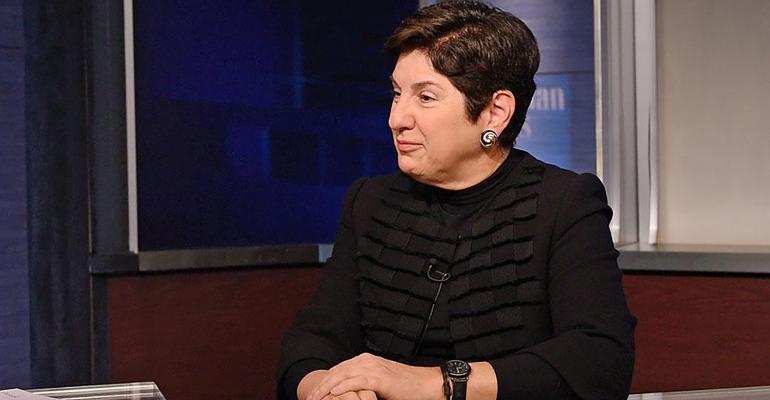While the Reddit traders who fueled an investment rally last week around GameStop and some other stocks have been getting a lot of attention, Goldman Sachs is telling its wealth management clients to ignore the noise and focus, instead, on investing for the long-term.
“Our view is that clients should think of their participation in the marketplace with a long-term view, and be long-term investors,” said Sharmin Mossavar-Rahmani, chief investment officer of Goldman Sachs Wealth Management, on a call to discuss the firm’s 2021 investment outlook. “If that’s the focus, then what’s going on day-to-day and week-to-week is nothing but a lot of idiosyncratic noise in the marketplace. And we think clients should just ignore it. We don’t think it has a long-term impact on market valuations. We don’t think it has a long-term impact on market volatility.”
The incident did create some short-term volatility in the markets, but that’s all it is, Mossavar-Rahmani said, during the event hosted by Goldman Sachs Personal Financial Management and moderated by Kara Murphy, PFM’s CIO.
“Our view is that it’s a very small number of stocks, it’s a very small percentage of the market cap, and it’s a very high-turnover, volatile group of investors," said Mossavar-Rahmani.
The net result for this group of investors, she said, is zero alpha. Some clients may have a fear of missing out on the gains, because they might hear about somebody who held one of these stocks that did very well.
“But they don’t hear about all the other eight stocks that did very poorly,” she said.
Some of the volatility we’ve seen in the last week, where some of the stocks were up something like 30 times in the month of January, is not sustainable.
These stocks represent a small part of total market capitalization, so broad exposure to U.S. equities will not be impacted by this, Mossavar-Rahmani said.
“People who’ve stayed invested with the S&P 500 have done much better than the retail investors churning some of these stocks,” she said.
Mossavar-Rahmani was also very cautious of Bitcoin and other cryptocurrencies, which she says is not an asset class. Bitcoin has had 80% volatility over its lifetime, and 70% volatility more recently.
“We don’t think it’s a viable allocation in the portfolio,” she said. “We don’t think it’s something for our clients and for wealth creation or for wealth preservation. That’s really gambling and speculation. It’s not an investment.”





